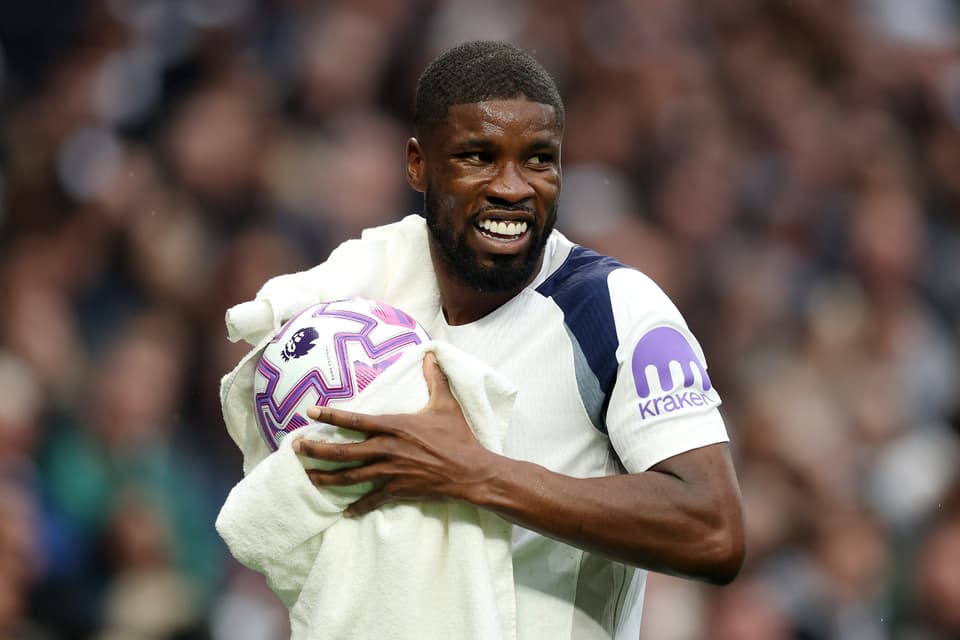Tottenham Hotspur had the perfect opportunity to climb into second place in the Premier League, yet the familiar frustration of inconsistency returned to haunt them.
Once again, a home defeat left the fans disappointed, the players deflated, and Thomas Frank facing a growing list of problems. The 2-1 loss to Aston Villa wasn’t just about dropped points it was another sign that Spurs’ deeper issues are beginning to show at a crucial time, just as the fixture list becomes more demanding than ever.
For the third consecutive Premier League home game, the final whistle was met with boos from the stands. What began as optimism has slowly turned into irritation, as Spurs continue to struggle at home.
Their recent record is worrying just three wins from their last eighteen league matches at the Tottenham Hotspur Stadium. Those victories came against Southampton, Burnley, and Manchester United, which is far from the standard expected of a team aiming for a top-four finish.

Frank had called on both players and supporters to create a vibrant, united atmosphere, but that sense of energy never fully materialised. Spurs started well, taking an early lead, but they failed to maintain control.
The rhythm and intensity faded, and Villa grew stronger as the game went on. The crowd tried to lift the team, particularly in the second half when Kevin Danso’s long throws caused panic in the box, but it wasn’t enough.
There were brief flurries of pressure, a few half-chances, and the usual flashes of promise, yet Tottenham once again lacked the consistency to sustain momentum.
Frank now faces an urgent challenge to turn around his side’s home form. The upcoming fixtures are not kind, with Chelsea and Manchester United both set to visit North London. Without quick solutions, this troubling pattern could deepen further.
Adding to Tottenham’s woes is the growing concern around defensive depth. The match against Villa marked the start of a hectic run seven games in just twenty-two days and already the backline is stretched to its limits.
Destiny Udogie was unavailable due to a knee injury sustained on international duty, while Ben Davies also missed out after picking up a knock while playing for Wales.
Things got even worse before kick-off when Cristian Romero suffered an injury during the warm-up, forcing Danso to step into the starting lineup at the last minute.
That left Spurs with only eight substitutes on the bench, including just one recognized defender 16-year-old Jun’ai Byfield. The lack of experience and options in defence is a growing problem, especially given the intensity of the schedule.
Tottenham had explored signing another defender late in the transfer window but ultimately failed to do so, a decision that now looks increasingly costly.
If Udogie and Romero face even brief spells on the sidelines, Frank will be forced to improvise, possibly shifting midfielders like Archie Gray or Joao Palhinha into defensive roles just to fill the gaps.
Amid the frustration, one player continues to stand out Mohammed Kudus. The Ghanaian forward has been Tottenham’s brightest spark this season, delivering four goals and two assists so far in the Premier League.
Against Villa, he once again looked like the only player capable of producing something special. His cross led to the opening goal, and moments later he nearly doubled the lead with a sublime touch and finish that was ruled out for offside.
Every time he gets the ball, there’s a sense of anticipation that he might create something out of nothing.
Kudus’ performance, however, only highlighted the struggles of those around him. Wilson Odobert and Mathys Tel showed flashes of potential but lacked conviction when it mattered most.
Both had opportunities to make a difference Tel failed to connect with Kudus’ cross at the back post, while Odobert wasted a big chance by shooting straight at Ezri Konsa.
Their inconsistency in decision-making and composure underscores just how dependent Spurs have become on Kudus for creativity and end product.
At times, the attack feels disjointed, reduced to giving the ball to Kudus and hoping he can produce a moment of magic. That kind of reliance on one player is unsustainable for a team with Tottenham’s ambitions. It reflects not only Kudus’ brilliance but also the lack of cohesion and cutting edge across the forward line.
Thomas Frank now faces one of his toughest spells since taking charge. The schedule is relentless, the squad is thin, and the fans’ patience is wearing thin.
The team’s inability to turn home advantage into results is becoming a serious concern, while the defensive injuries have exposed how vulnerable the squad truly is.
Unless Spurs find solutions quickly both in structure and mentality their season could begin to unravel before it even reaches its toughest phase.
Tottenham’s defeat to Villa was more than just a bad day at the office. It was a warning sign that the problems run deeper than form or fatigue. For Frank, the time for experimentation is over—Spurs need urgency, unity, and results before the season slips out of reach once again.